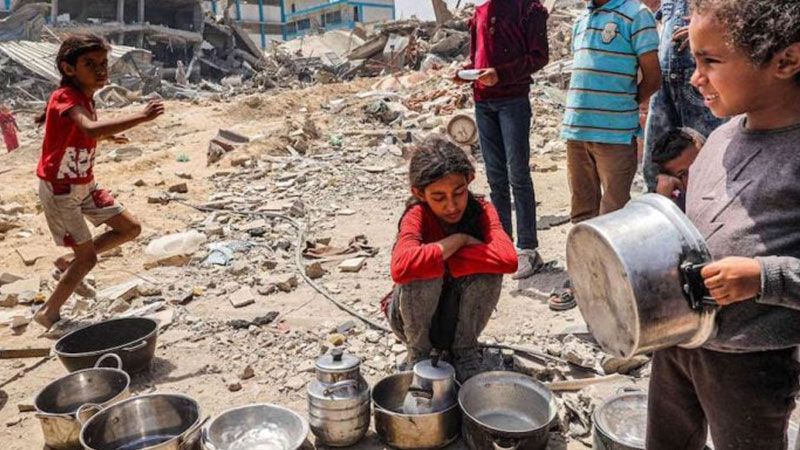
New York - Saba:
The World Health Organization (WHO) has warned that the humanitarian catastrophe in the Gaza Strip, particularly in the north, is exacerbated by severe shortages of medicines, food, fuel, and shelter.
In a statement on Friday, the organization called on the Zionist enemy to facilitate the entry of humanitarian aid and ensure its access to those affected.
The Director-General of the Organization, Adhanom Ghebreyesus, stressed that the vast majority of the displaced have sought refuge in public buildings or relatives, while 90% of them live in tents, which makes them vulnerable to serious diseases, especially with the arrival of winter and the risks of cold and floods.
Ghebreyesus added that the situation in northern Gaza has become "appalling" since the Israeli enemy army launched a large-scale operation in the area, warning of worsening malnutrition and food insecurity among the besieged population.
Since Sept. 30, the Zionist enemy has been blocking the entry of any trucks carrying food, water, or medicine into the northern Gaza Strip, according to the United Nations and the website of the Zionist military agency that oversees humanitarian aid crossings.
The northern Gaza Strip suffers from difficult conditions, in light of the lack of potable water, medicines and food, and the prevention of the entry of aid, amid the continued air and artillery bombardment, bulldozing and blowing up operations, which exacerbated the humanitarian crisis.
The World Health Organization (WHO) has warned that the humanitarian catastrophe in the Gaza Strip, particularly in the north, is exacerbated by severe shortages of medicines, food, fuel, and shelter.
In a statement on Friday, the organization called on the Zionist enemy to facilitate the entry of humanitarian aid and ensure its access to those affected.
The Director-General of the Organization, Adhanom Ghebreyesus, stressed that the vast majority of the displaced have sought refuge in public buildings or relatives, while 90% of them live in tents, which makes them vulnerable to serious diseases, especially with the arrival of winter and the risks of cold and floods.
Ghebreyesus added that the situation in northern Gaza has become "appalling" since the Israeli enemy army launched a large-scale operation in the area, warning of worsening malnutrition and food insecurity among the besieged population.
Since Sept. 30, the Zionist enemy has been blocking the entry of any trucks carrying food, water, or medicine into the northern Gaza Strip, according to the United Nations and the website of the Zionist military agency that oversees humanitarian aid crossings.
The northern Gaza Strip suffers from difficult conditions, in light of the lack of potable water, medicines and food, and the prevention of the entry of aid, amid the continued air and artillery bombardment, bulldozing and blowing up operations, which exacerbated the humanitarian crisis.